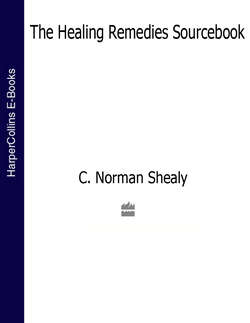Читать книгу The Healing Remedies Sourcebook: Over 1,000 Natural Remedies to Prevent and Cure Common Ailments - C. Shealy Norman - Страница 12
ОглавлениеACHILLEA MILLEFOLIUM
YARROW Gandana
Yarrow is a sacred plant to many cultures. Yarrow balances emotional upsets, and is a frequent addition to treatments during menopause.
PROPERTIES
Yarrow is bitter, pungent, astringent, cooling, and drying. It acts as a diaphoretic, antispasmodic, anti-inflammatory, antiphlogistic, antiseptic, and tonic. Yarrow is carminative, alterative, sedative, vulnerary, and emmenagogic.
Part of Plant Used Leaves, stalks, flowers, and fruit.
Conditions Treated Used for hemorrhages, ulcers, measles, colds, fever, nosebleeds, abscesses, vaginitis, varicose veins, headache, menopause, hemorrhoids, gout, cellulite, acne, sunburn, smallpox, and chicken pox.
Form Taken Skin patches, lotion, bath, compress, massage oil.
Used with Other Herbs? Angelica, cedarwood, cinnamon, clove, lavender, lemon, licorice, myrrh, myrtle, sarsaparilla, St. John’s wort, turmeric.
HOW TO USE
For wound treatment, simply press fresh leaves and flower tops into cuts and scrapes on the way to washing and bandaging them.
Place the seeds in a pot and add boiling water.
As an infusion to relieve menstrual cramps or hot flashes, steep 2 teaspoons of the dried herb in a cup of boiling water for about 10 minutes. Add honey to taste, and drink warm.
CAUTION
Do not administer yarrow to children under two years old.
Those with sensitive skin may be irritated when exposed to the sun while using yarrow.
It should not be used in cases of high vátha.
